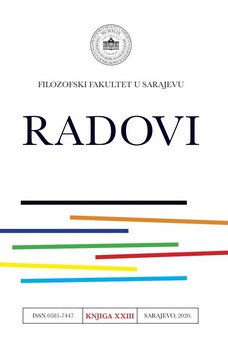MAPPING THE METAFICTIONAL: ALEKSANDAR HEMON’S THE LAZARUS PROJECT AS A POSTMODERN NARRATIVE
MAPPING THE METAFICTIONAL: ALEKSANDAR HEMON’S THE LAZARUS PROJECT AS A POSTMODERN NARRATIVE
Author(s): Aleksandar StojanovićSubject(s): Bosnian Literature, Theory of Literature, American Literature
Published by: Filozofski fakultet Univerziteta u Sarajevu
Keywords: maps; historiographic metafiction; postmodernism; identity; hybridity;
Summary/Abstract: The aim of the paper is to present Aleksandar Hemon’s The Lazarus Project as a postmodern narrative which employs various strategies such as an altered view of history – namely history serving purely as material to construct a new narrative – a growing emphasis on the manner in which space affects one’s identity and overall hybridity in both the narrative structure and the characters themselves. We shall discuss Linda Hutcheon’s notion of historiographic metafiction as the key concept around which the narrative is formed, followed by a view of the characters’ search for identity in the metafictional labyrinth through Fredric Jameson’s concept of cognitive mapping. These two theories combined give us a more detailed look into the narrative structure of the novel and provide evidence of its postmodernity. The aforementioned hybridity will be presented in the context of the narrative structure resembling a loop due to its metafictional nature and through the amalgam of various nationalities in each character. The paper ultimately strives to express the postmodern characteristics of the narrative and draw attention to the way the themes of the literary work are emphasized by such a structure, more so than if any other narrative structure had been used.
Journal: Radovi Filozofskog fakulteta u Sarajevu
- Issue Year: 23/2020
- Issue No: 1
- Page Range: 318-340
- Page Count: 23
- Language: English

